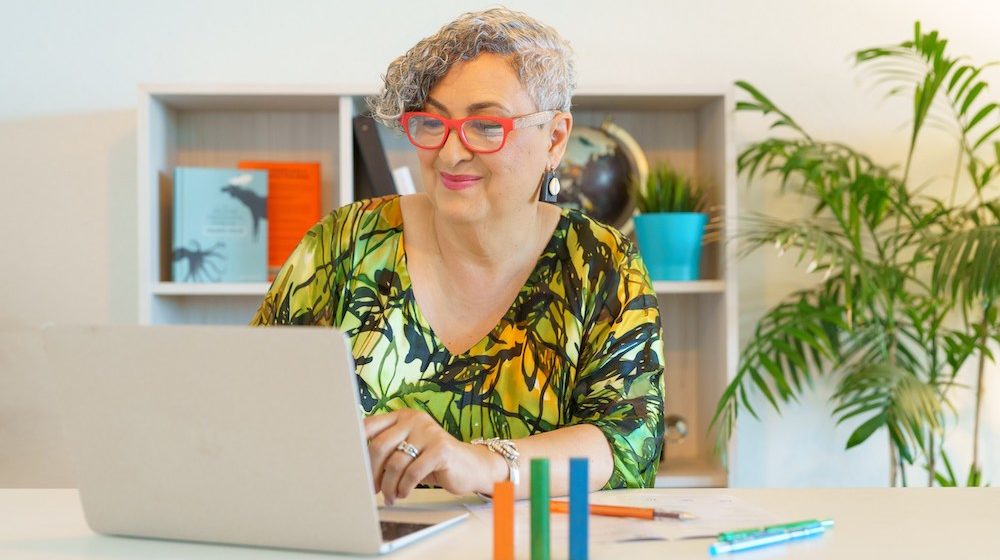
By Mary MacVean
Larkapor Moo would like to buy a house, and she’s certain she’s not alone among the women refugees with whom she works.
“A lot of women are interested in that. They don’t know how to start, or they don’t have the money,” said Moo, the community program manager for Karen Organization of San Diego, which works with refugees from Burma.
Moo said she has no business background but was eager to learn how to budget and invest, and to think ahead financially. That prompted her and two other women from Karen to take a four-part financial education series aimed at women without much money.
The grassroots network California Women Rising at Women’s Foundation California sponsored the free series called Making Your Money Work for You, on Zoom, and taught by the financial coach and teacher Saundra Davis. The network is committed to teaching women, particularly women of color, how to make the most of their finances.
“The thing I think was important about this series was to make sure that people who joined could first identify what mattered most to them and then begin to align their choices and their financial behaviors with what mattered most,” Davis said in a telephone interview.
“When I came into this field, most of the conversation around people who don’t have a lot of wealth was negative — everything that we’re doing wrong,” Davis told participants in one of the sessions.
“We’re taught to feel shame and blame,” she said. Living in financial distress, she notes, is treated as a character flaw.
Women generally have less financial knowledge than men. They also are more likely than men to give up their jobs to care for a relative; they earn less; and they live longer than men.
An American College of Financial Services study found that among people ages 60 to 75, 35% of men, but only 18% of women, passed a quiz on retirement income literacy.
“Most low-income women do not have access to financial education. They also feel they cannot think about money because they don’t have any, so this is to demystify and empower them,” said Bia Vieira, Interim CEO for the Women’s Foundation California, a partner with California Women Rising.
Davis can relate. At 44 she became a financial planner, changing careers in part “because I was tired of struggling with money, and everyone I know was struggling with money,” she told participants.
In her lectures, Davis speaks plainly and breaks down complex notions such as inheritance, life insurance investments and asset protection so that participants can see where to begin. Davis said she wants to normalize dealing with and learning about money. “Money is just like everything else,” she said. “We didn’t come into the world knowing how to brush our teeth or to cook.”
For women who don’t have much money to spare, and possibly the most to lose, financial education becomes crucial; unlike wealthy people, they rarely have financial advisers.
“My work focuses on recognizing your personal power within a system that is oppressive,” said Davis, 60, a Navy veteran who is based in the Bay area.
“There is a money game out there and once we learn the rules of the game, we can play the game,” said Severine Bryan, an accountant and participant in the program from Atlanta who wants to become a personal financial coach.
Among the things she learned, she said, are “not to beat up on myself, to start where I am… to use the tools I have now to move forward.”
Davis’ classes feel personal; she’s funny, and she shares her struggles and successes. For example, in 1998, her credit rating was so “horrid” that she had to pay 25% interest on a car loan. But she needed a car for work, so she bit the bullet.
Later, she invested in herself when she returned to school for a master’s degree, funded by a credit line on her home.
The series “was really in response to what folks connected to the organizations “said they needed and wanted,” Vieira said. “We really focus on economic security as one of our important pillars,” with others including health, reproductive rights and racial justice.
The springtime sessions were budgeting, setting goals, asset building and asset protection. Vieira said she expects the program will be offered again.
Davis is the founder and executive director of Sage Financial Solutions, which develops comprehensive financial capability programs for low- and moderate-income communities.
The workshop series was presented in partnership with The California Endowment, The California Wellness Foundation and The Peggy and Jack Baskin Foundation.
About Mary MacVean
Mary MacVean is a longtime journalist at The Associated Press and the Los Angeles Times who has written about many subjects including women’s rights and health. She also has worked in urban farming and is deeply interested in food justice culture and politics. She has lived in California for about 20 years with her husband they have two grown sons.